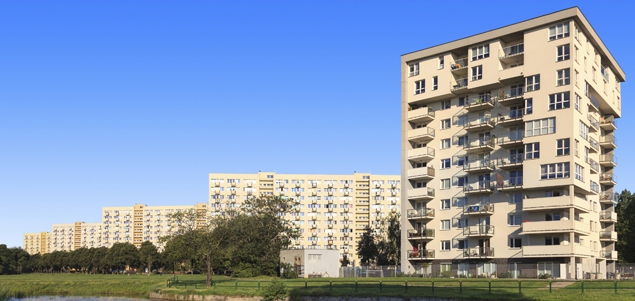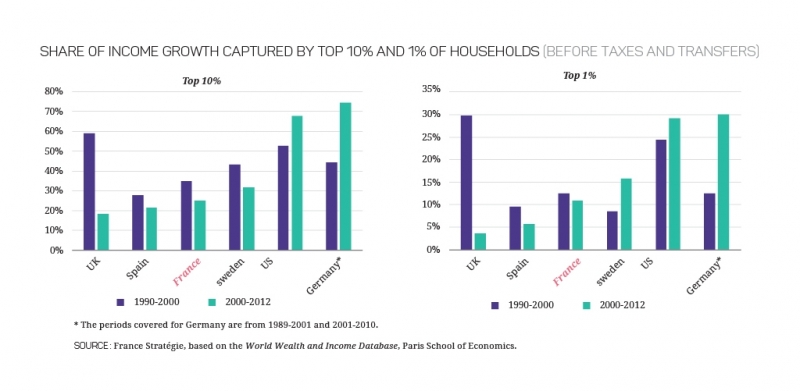
Read the original on the French-language website.
Today, people in France are divided over the benefits of economic growth. While many consider it is a necessary condition for prosperity, there are those who feel it leads to social and regional inequalities, not to mention environmental degradation.
Yet growth provides the additional resources that can be put aside for future spending and the well-being of citizens. It therefore stands to reason that what type of growth should be questioned rather than growth itself. Over the next decade the gains from growth must allow the government to finance investments worth two percentage points of GDP in education, lifelong training and the energy transition.
Even though inequality has progressed in France since the turn of the century, the fruits of growth have been spread more evenly throughout the population than has been the case in other countries since the beginning of the 1980s.
Nevertheless, relatively weak growth and a moderate rise in inequality raise the question of how France’s social model can be made more efficient and its economy strengthened. Policies such as improving education and lifelong learning, and reducing discrimination in the workplace can enhance both social cohesion and economic growth. Others such as making use of tax instruments and supporting innovation will require certain trade-offs.









